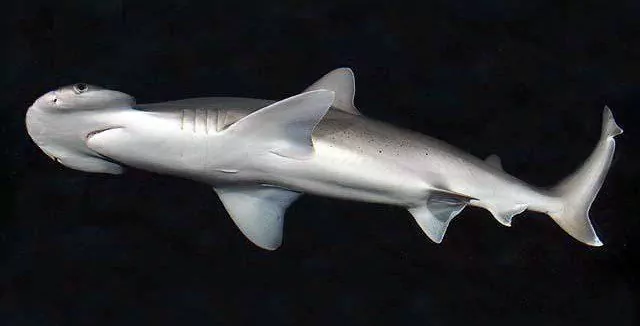DIVING NEWS
The shark that can handle vegetarianism

Picture: D Ross Robertson.
The hammerhead shark’s smaller relative the bonnethead has been revealed as the world’s first-known omnivorous shark.
The bonnethead shark (Sphyrna tiburo) can switch between flesh and plant-based diets at will, according to researchers from the Department of Ecology & Evolutionary Biology at the University of California, Irvine, in a study led by Samantha Leigh.
The species, which grows to no more than 1.5m long, abounds on the USA’s Atlantic and Gulf coasts, where populations are thought to number as many as five million, and is also found in the eastern Pacific.
6 September 2018
ts tendency to consume large quantities of seagrass was first noted some 11 years ago, when as much as 62% of its stomach contents was found to consist of plant material.
However, it was initially believed that the material was ingested collaterally as the sharks hunted for fish, crustaceans, squid and molluscs in seagrass beds, and that the sharks were incapable of deriving any nutritional benefit from it.
Working with scientists from Florida International University, the researchers experimented by replanting seagrass in laboratory tanks with the addition of a carbon isotope to give it a distinct chemical signature. Five Florida Keys bonnetheads were then captured, and confined to a diet of 90% seagrass and 10% squid over three weeks.
The sharks’ faeces were collected during the trial, at the end of which the sharks were killed and their digestive systems and faeces analysed.
The bonnetheads were shown to have gained nutritional benefit from the seagrass, putting on weight and remaining healthy. High levels of the isotope in their blood and liver was said to demonstrate that cell growth had occurred.
Carnivores such as sharks normally have very low levels of the enzymes required to break down fibres and carbohydrates, but the bonnetheads had very high levels, with more than half of the organic material in the seagrass digested. The sharks were reckoned to be consuming the plants with “at least moderate efficiency” – on a par with juvenile green turtles.
The researchers say that the discovery has significant implications for the importance of the sharks in the ecology of seagrass meadows, the world’s most widespread coastal eco-system.
However, speaking to Newsweek the Director of the Florida Program for Shark Research at the University of Florida, Gavin Naylor, described the suggestion that bonnethead sharks played a major role in maintaining seagrass eco-systems as “unsubstantiated speculation”.
He also maintained that the three-week experiment had been insufficient, because the sharks might have been exhibiting no more than a stress response during their confinement. He felt that a six-month study would be required to reach firm conclusions.
The research is published in Proceedings of the Royal Society B.
